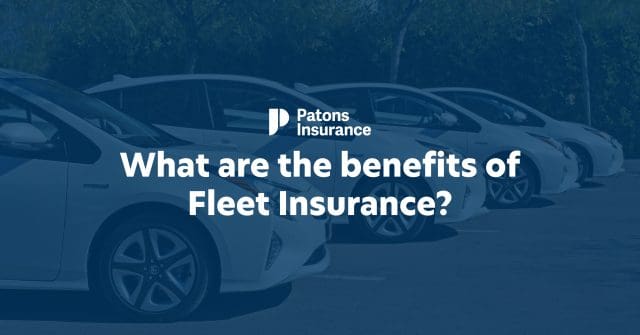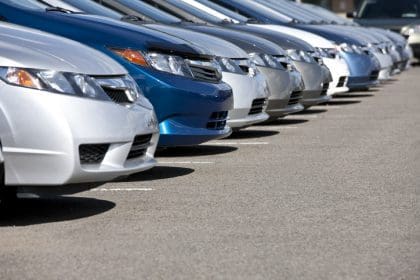What is fleet insurance?
Fleet insurance is a type of cover designed for business owners who use multiple vehicles for their work. With fleet insurance, all vehicles are insured under one policy rather than separately.
Generally, it is is designed for businesses that use two or more vehicles. At Patons Insurance, we can provide policies for fleets with three or more vehicles.
This article explores the benefits of insuring your business’s vehicles under one policy and how to find the right level of cover for your business.
The benefits of fleet insurance
Reduced admin
One advantage of fleet insurance over individual cover for each vehicle are that it cuts down on the amount of admin you have to do. With fleet cover, all your vehicles are covered under a single policy with one renewal date, meaning less paperwork.
Saving money
Fleet insurance policies can also save you money because they typically work out cheaper than having individual policies for each vehicle. As a general rule, the more cars you insure, the greater the discount you could receive.
Flexibility
Business owners can take out Any Driver cover with their fleet insurance, meaning that any employee who meets the criteria set out in the policy is covered to get behind the wheel, whether it is a taxi, van, limousine, bus or lorry.
Any Driver cover also means there are no delays in waiting to add a driver to a particular vehicle, which is especially useful for businesses with a high turnover of staff, or which operate shift systems, such as taxi bases, who may require different drivers to operate different vehicles from one day to the next.
There also isn’t usually an upper limit to your fleet size or the different vehicles it can include, meaning you can add vehicles to your policy as your business grows.
Better future rates
With fleet insurance, you can build a positive fleet experience to secure better rates in the future.
Your Fleet Experience record is built on a variety of factors, including:
- The number of vehicles in your fleet
- The number of claims made
- The frequency of claims
- The total paid out for all claims
Finding the right cover
Levels of cover
As with conventional insurance, fleet policies range from third party to third party, fire and theft, and comprehensive cover.
Third party only (TPO) is the minimum legal requirement and covers you in cases of damage or loss of other vehicles, or injuries to third parties caused by your vehicles. It doesn’t cover your own vehicles.
Third party, fire and theft also covers damage to your own vehicles caused by fire and incidents of theft against your fleet. However, it does not cover any accidental damage to the vehicles in your fleet.
Comprehensive cover includes the previous levels, as well as any costs arising from accidental damage your fleet may suffer.
Working with an insurance broker
Because every business is different, it is best to discuss your policy with your insurer or insurance broker, such as Patons Insurance, to ensure you get the right fleet insurance cover for your business.
Working with an insurance broker saves you time by eliminating the need to shop around for the best quotes among insurance providers. Insurance brokers work with you to assess the risk of your business and will present your details to a panel of insurers to find you the most suitable policy at the best price they can find.
To ensure that you are properly covered, you will need to communicate with your insurance provider or broker and provide them with accurate details of your business to obtain a quote.
How much does fleet insurance cost?
Fleet insurance premiums can vary hugely from business to business. This is due to the various combinations of vehicles, their uses, and the cargo and passengers they can carry.
When assessing the risk, premiums can be affected by the number of vehicles in the fleet, types of goods, products or passengers that are being carried, the area in which the business operates and where they are kept when not in use.
Insurers will also consider the driving history of employees who use them as well as a company’s previous claims experience. It might be worth considering only hiring drivers with clean licences and providing training to your employees to demonstrate that you are taking steps to mitigate the risk.




